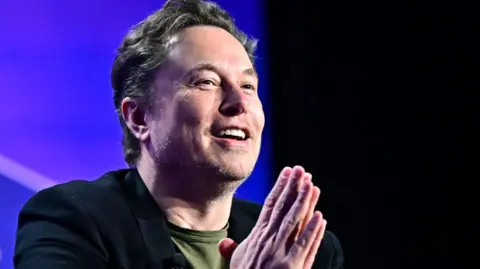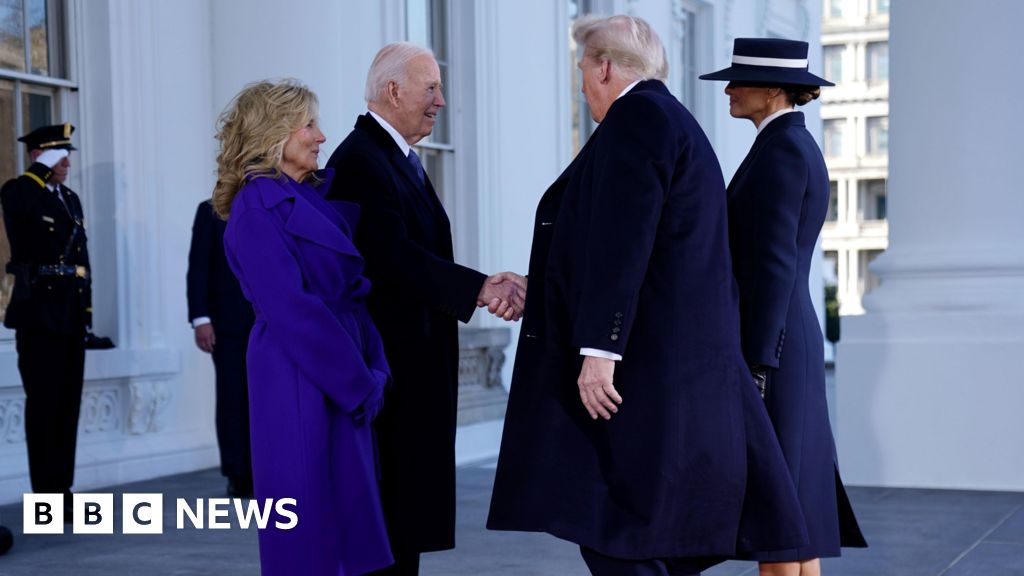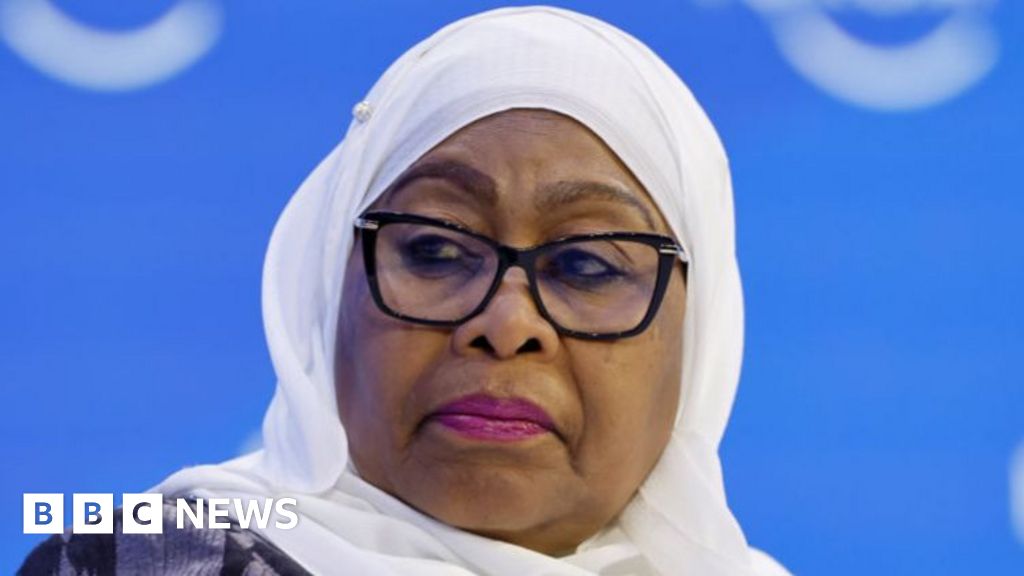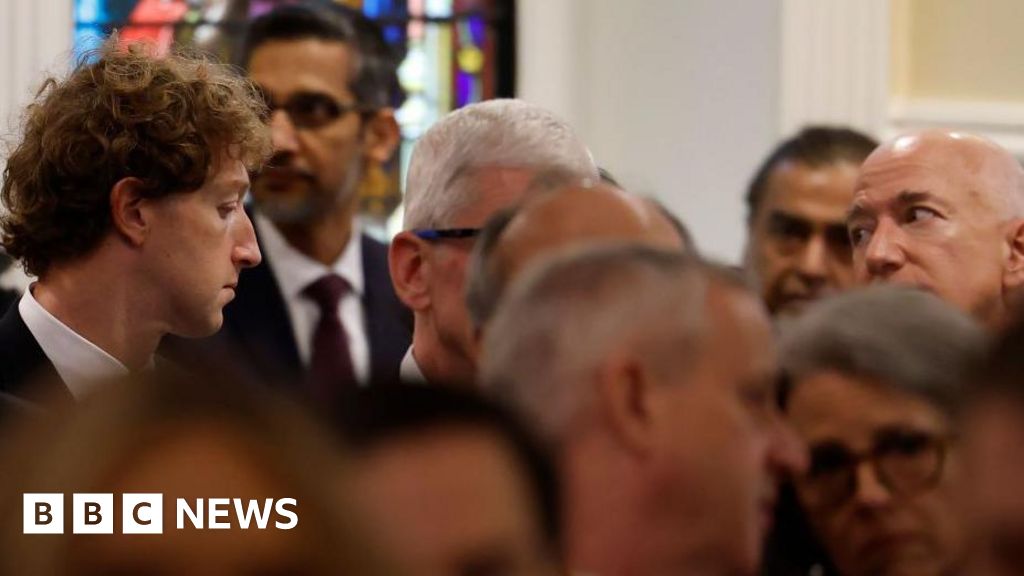ARTICLE AD BOX
11 minutes ago
By Zoe Kleinman, Technology editor

 Getty Images
Getty Images
Elon Musk might, once again, get his own way.
His Tesla pay deal - worth up to $56bn (£44bn) depending on the firm's share price - which has now been backed by shareholders is 75% of the entire spending for schools in England in 2024-5 (£60bn) and around a quarter of the budget for the NHS (£192bn).
To his many admirers, Mr Musk is worth every single cent which comes his way.
His businesses include Tesla, Space X, X (formerly Twitter), Starlink, Neuralink and X.ai, his latest AI project.
You could argue Tesla opened up the US market for electric vehicles, SpaceX has just sent the world’s most powerful rocket into space, and a man who volunteered to be the first human to be implanted with a Neuralink microchip into his brain can now control a computer using his thoughts.
Today, the $56bn question is: would this portfolio have been as successful without him?
Tesla's growth
You could say Mr Musk's pay deal was really about getting him to stay put at Tesla.
Prior to 2018, when it was agreed by the company’s board, there had been speculation about his future at the electric car maker.
The deal was structured in such a way that if Mr Musk didn’t hit certain milestones – such as Tesla’s market value, sales and underlying profit – he wouldn’t get paid at all.
Though, at that stage, he was hardly digging down the back of the sofa for loose change given he was worth nearly $20bn, according to Forbes magazine’s rich list of 2018.
But if he did hit certain goals, the potential payday was astronomical.
In fairness, Mr Musk has achieved the targets laid out for him. For example, Tesla’s market value had grown from $54bn to the $650bn goal set out in the original deal.
It has since slid back down to $570bn.
Musk's profile
When Tesla wobbled in 2022, it was said to be because Mr Musk had taken his eye off the ball to concentrate on X – so it was his absence rather than his presence which caused a problem.
Yet his profile clearly adds massive value to these firms.
Mr Musk doesn’t believe in communications teams, preferring instead to broadcast prolifically to his 187m followers directly on his social network.
If you’ve got Mr Musk in your corner, your PR does itself, with mixed, but always high profile, results.
He generates endless global news headlines from behind his keyboard, and you could argue that very, very few people have that power - publicity that money can’t buy.
He also has enormous political clout: he’s met with several world leaders, including China’s President Xi Jinping. He claims to have spoken to Russian President Vladimir Putin on the phone, and he once livestreamed a conversation with Israeli Prime Minister Benjamin Netanyahu.
He is a fierce and demanding boss, a workaholic who doesn’t take no for an answer. Former employees say even the most dedicated among them burn out, while he does not.
Dolly Singh, who worked at SpaceX for Mr Musk between 2008 and 2013, previously told BBC News he was an "incredible leader".
"If that wasn't the case, he wouldn't be accomplishing the things that he is," she said in 2022.
But she also conceded that working for him was “exhausting”.
Risky business
Though shareholders backed Mr Musk's pay package, legal experts say it is not clear if the court that blocked the deal will accept the re-vote and allow the company to restore his pay.
But former Tesla backer Steve Westly told the BBC earlier this year keeping Musk is not a necessity.
“Elon is a unique visionary …but I don’t know if that means he’s essential to be running any or all of those companies today,” he said.
"No one stays on top forever, especially when you’re trying to lead seven companies at once.”
And for all the successes under Mr Musk, there have also been failures.
For years Tesla didn’t make a profit at all, then a tweet about the company becoming private caused financial chaos, ending in an investigation by regulators resulting in him standing down as CEO.
I’ve spoken to two former employees who claim that speaking out about safety concerns at Tesla cost them both their jobs and their professional reputations.
Tesla nearly went bankrupt. Not all SpaceX rocket launches work and each failure costs the company millions of dollars. The Neuralink chip started to malfunction shortly after it was implanted, though this has since been fixed.
Mr Musk recently claimed that Starlink has now broken even financially - but Bloomberg published a report suggesting that he had underplayed the huge cost of launching its satellite network infrastructure.
But the US has a different view about risky businesses.
"The US market is not only huge, but also more predisposed to taking big shots," Mustafa Suleyman, who co-founded Google DeepMind and has just joined Microsoft, told the BBC.
The UK could do with being “more tolerant and more celebratory of failures,” he added.
If Mr Musk has been bruised by failure, he doesn’t show it. He is outwardly loud, dominant and defiant.
He says today that he has sent a cake to Delaware, which tried to block his $56bn Tesla pay deal.
It is emblazoned with his favourite phrase “vox populei, vox dei” – the voice of the people is the voice of God.
Additional reporting by Dearbail Jordan.

 7 months ago
33
7 months ago
33








 English (US) ·
English (US) ·